
The Business of Fashion
Agenda-setting intelligence, analysis and advice for the global fashion community.

Agenda-setting intelligence, analysis and advice for the global fashion community.
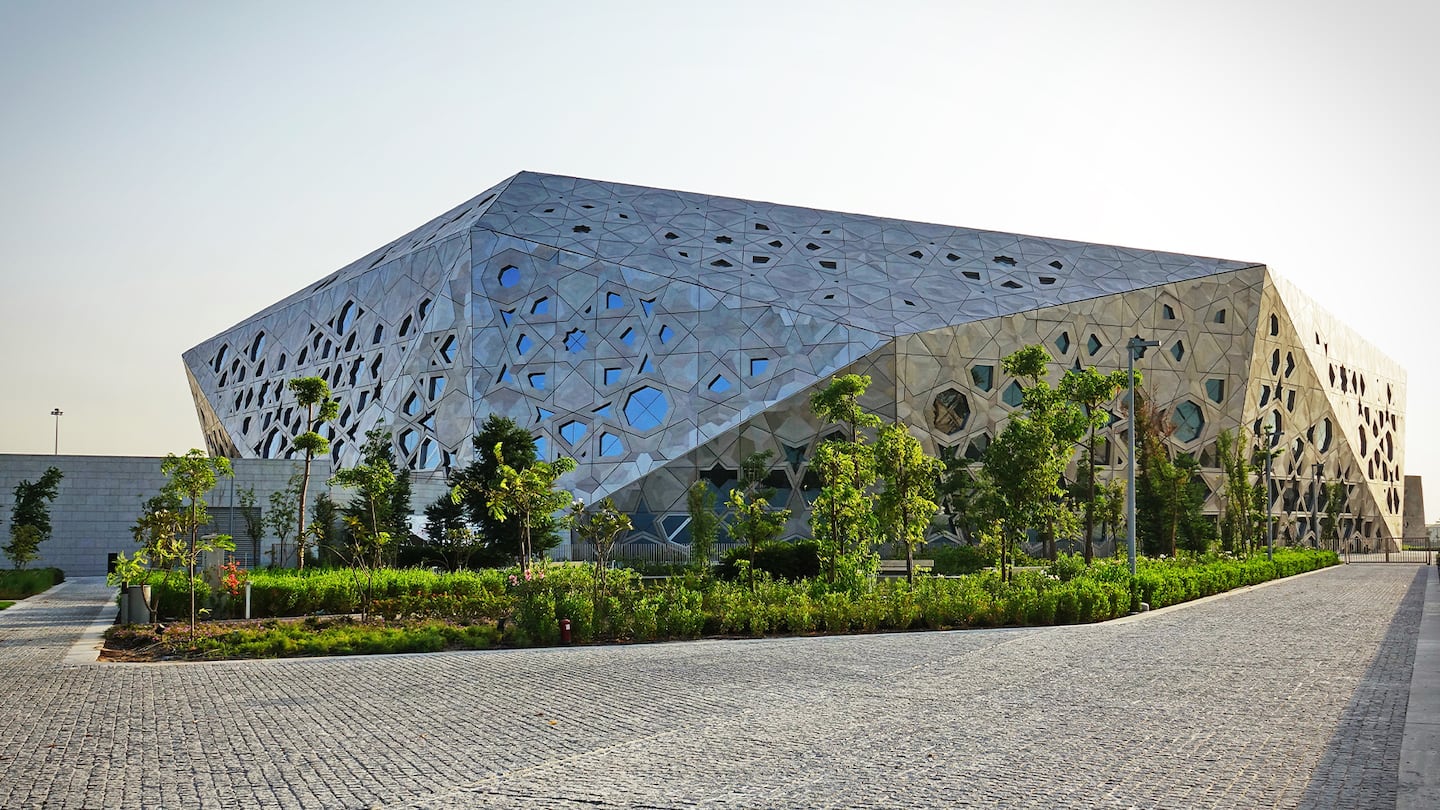
Last week, fashion professionals and members of the international press gathered at Kuwait’s Sheikh Jaber Al-Ahmad Cultural Centre — a futuristic cultural centre and opera house, and the largest of its kind in the Middle East — for the inaugural Oud Fashion Talks (OFT) and a series of networking events from May 31 to June 1.
Hosted by fashion publication 3oud.com and backed by its parent company, real estate firm Tamdeen Group, OFT is the first industry event of its kind in the country. “[Throughout] my ten years working in media, I always [saw] a distance between Kuwait and the rest of the world. Now, with Saudi Arabia and Doha opening up [to international players], we felt like outsiders [from a creative output perspective] — and there is no reason [for that],” Zainab Abdulrazzaq, founder of 3oud.com and organiser of the Oud Fashion Talks, told BoF.
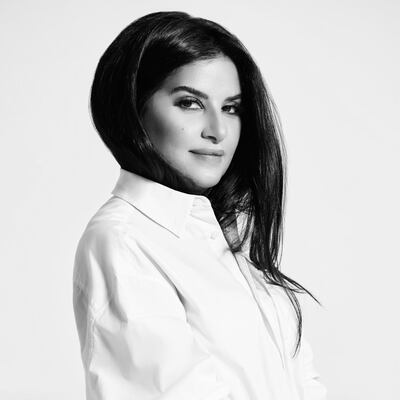
Total luxury fashion sales in the Gulf Cooperation Council (GCC) — those who live in Bahrain, Kuwait, Oman, Qatar, Saudi Arabia and the United Arab Emirates — were $2.9 billion in 2021, with Kuwait accounting for 15 percent of the regional market, according to Bain & Company.
Typically, GCC nationals purchased 30 to 40 percent of their luxury goods outside the region. However, stalled travel, market contractions and subsequent trading challenges following the outbreak of Covid-19 saw consumers repatriate spending in their respective countries, localising their shopping habits in terms of choice of brands and channels. OFT are seeking to evolve the reputation of Kuwait from a purely consumer market, and instead also draw attention to the local design industry.
“Oud Fashion Talks were born to communicate to local designers and creatives, to understand their challenges and understand how we can help them. When we do this next year, we want a success story, like [a featured] local designer [receiving] a grant or support,” says Abdulrazzaq.
Indeed, the Middle East as a region had already started to shift away from being a historical importer of fashion trends to a nascent exporter, with Mordor Intelligence projecting a market growth for the luxury goods sector in the Middle East and North Africa (MENA) region at a CAGR of 8.5 percent between 2022 and 2027.
Oud Fashion Talks were born to communicate to local designers and creatives, to understand their challenges and understand how we can help them.
From building an Arab fashion house to sustaining creativity as an emerging designer, the evolving style and consumer preferences of the region as well as an overview of the state of fashion in the Kuwait and MENA region, OFT sought to highlight key focus areas, opportunities and challenges for the region.
Moderated by former Harper’s Bazaar Arabia editor-in-chief Louise Nichols, guest speakers included BoF’s founder and CEO, Imran Amed, CEO of Elie Saab, Elie Saab Junior, and BoF 500 member and founder of retailer Al-Ostoura, Najla Maatouk.
In addition to the talks, OFT hosted a series of networking events, including an intimate dinner hosted by her Excellency Sheikha Hanouf Bader Al-Mohammed Al-Sabah, and a gala event, celebrating Kuwait’s avant-garde fashion community and creative talents alongside a preview of a pop-up exhibition, showcasing the work and craft of Kuwaiti creatives at the Cultural Centre.
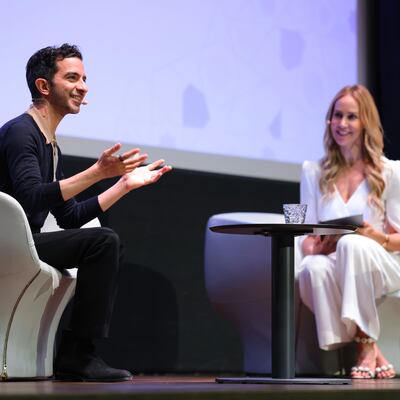
The State of Fashion in Kuwait and the MENA region
BoF’s founder and CEO Imran Amed gave an overview of the global fashion industry in 2022, sharing his outlook for retailers, designers and distributors across the globe and in the GCC.
The State of Fashion Report 2020 noted that the GCC presents significant opportunities for fashion players, many of which have operated successfully there for years. Dubai is often cited as a leader in the region, with regular references made to its world-class malls offering a top-end customer experience. But, as Amed shared, boutiques in Kuwait have long set trends in the wider region and offered a hallmark of success for international brands.
Imran Amed said: “There was a store [in Kuwait] called Villa Moda. Designers would speak in pride to be stocked in Colette in Paris, Browns in London and Villa Moda. This market was a real pioneer — there’s an advanced level of sophistication, taste and appreciation of fashion here, but over the last 15 years, other markets have raced ahead.”
When asked how the fashion industry in the MENA region is viewed, Amed said: “In Qatar, in Dubai, in Saudi, there is real investment and effort going in to develop what those local markets are, for people in those markets and outside of those markets. [Kuwait] is a blank slate and [that] is a real opportunity. Seize upon what you have had here historically, build upon that heritage and take advantage of the local creativity, [the] appetite here from a customer standpoint, and some manufacturing too.”
“A lot of countries haven’t understood the power that fashion has, to convey their cultures and communities. [...] If non-western countries don’t take ownership of their own heritage, fashion and way of dressing, oftentimes we let other people tell our stories. [...] That’s important in the Middle East as well. Every country should write their own fashion stories.”
The Evolution of Style, Shopping and Spending in Kuwait
Rachad Tabiat is the owner of AlOthman, Kuwait’s first multi-brand high-end boutique in 1956 and a pioneer in importing European luxury brands into The Middle East. In a rare public interview, the retailer discussed the changing taste and spending preferences of Kuwaitis.
Rachad Tabiat shared on stage: “The Kuwaiti customer is one of the most knowledgeable, savvy customers you can meet. We have to stay on top of our game all the time. The newer generation knows everything, and timing is very important.”
With about 60 percent of their buy in eveningwear when the pandemic hit, and the Ramadan merchandise for the season purchased before events were cancelled en-masse, 2020 required a quick shift in focus for the retailer, leading to a combination of evening wear, home collections and fashion-forward casualwear.
We can’t be the next Net-a-Porter or Matches — but we don’t want to be. I welcome competition. No one knows our home like we do.
To maintain customer relations during lockdowns, AlOthman also launched an e-commerce site in July 2020 — entering an increasingly competitive space with international sites like Net-a-Porter or MatchesFashion recently launching Arab sites, vying for digital market share. Online sales in the MENA region are expected to exceed $50 billion by the end of 2022.
“We can’t be the next Net-a-Porter or Matches — but we don’t want to be. I welcome competition. No one knows our home like we do. We’re here and we belong here. We have a direction. […] Now we’re launching another [website] for North America and Europe as well.” AlOthamn also has physical stores in Bahrain and London, with another in Qatar opening this month.
“We believe in local,” said Tabiat. “This is a very creative society and young people, so that’s what we want to do. […] We have a lot of local designers [and we] need to be involved in the community.”
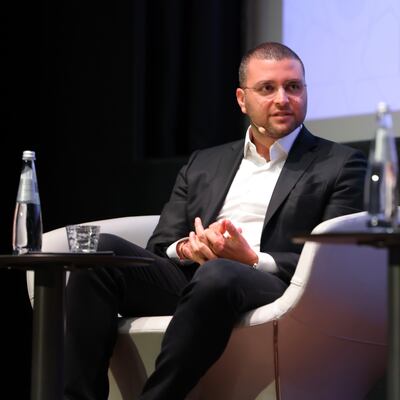
Building a Global Arab Fashion House
The Lebanese designer Elie Saab launched his business in 1982 and quickly became a household name in Beirut and internationally, as well as a prominent (and the first Arab) member of the Chambre Syndicale de la Couture.
Elie Saab Junior, the son of Elie Saab, runs the company today. The label creates couture, ready-to-wear, cosmetics and perfumes, kidswear, watches, lifestyle and homeware goods, sold through their own boutiques and stockists such as Net-a-Porter, Matchesfashion and Farfetch.
“The ecosystem of fashion as a region is not strong enough to support talent to compete on an international standard,” said Saab Junior. “For the Arab world to be competitive, there needs to be some unity at a regional level to support and curate young talent. One country can’t succeed alone.”
He continued: “We have collaborated with London College of Fashion and universities in Beirut to create a curriculum to start educating young designers, but if [there is] not an ecosystem post-education to support that young talent and practice their know-how, [there is] a discrepancy is in the system. The regions should take this industry more seriously.”
To Be Credible, Kuwait Must First Be Sustainable
Florence Bulte, chief sustainability officer of Chalhoub Group — a luxury goods retailer and distributor operating 680 stores across fashion, beauty and homeware in the Gulf — shared insights into the company’s sustainability and DEI strategy.
Florence Bulte said: “Being sustainable, investing into the environment, has a return on investment. When we equip our stores with systems and tools that allow us to reduce electricity, water, it reduces the bills. […] If you don’t create an inclusive environment, people will leave — and that is costly for the company to recruit and start projects from scratch.”
Bulte outlined issues prevalent to the region — the scarcer resource of water. “Fashion as an industry has the second highest consumption of water. For young designers, [it’s about] localisation. Work with what you have — be creative and innovative. The problems here are the same as everywhere, but we are not producing locally yet and it’s a must.”
“What [you] need to consider is always your scope. We are a retailer and distributor, so we may distribute Louis Vuitton, but we do not have control over how the products are produced,” advised Bulte.

Building a Fashion Brand in Kuwait Today
BoF’s Imran Amed was joined by local fashion designers Bazza Alzouman, Khalayat’s Fawaz Alyaqout and Haya Al Abdulkareem of Folklore The Label, to discuss building a fashion business and working in the creative industry in Kuwait today.
Haya Al Abdulkareem, whose accessories brand Folklore the Label has a focus on sustainable production, struggles with operating from a country that is “behind on environmental and sustainability [practices]. […] It’s impossible to produce leather goods here, so for my category, you need to do your research.”
In the mid-term, Abdulkareem intends to focus on her core products rather than expand her offering. “You need to know the product so well, do your research in how you will produce it and finance it appropriately.”
Fawaz Alyaqout of Khalayat entered fashion through a BA in graphic design before joining the Chambre Syndicale for 2 years. Joining forces with his cousin, the pair launched a “simple concept, made of linen, in four colours and four cuts” that grew into their label today.
The pandemic impacted the designer’s business significantly: “I had to find other means to get by. Now, I produce with another atelier. It’s slow but it’s growing. [However,] I have digitally and physically archived the products of the brand, so I can still work remotely thanks to the pandemic.”
Be part of the change, don’t wait for the change. We’re all struggling with platforming and networking, but we need to work together to make it a better place.
Bazza Alzouman launched her eveningwear business — a large market in Kuwait — in 2014, with an atelier based in Kuwait. “The short lead times are important to me, [but] it’s hard here with no infrastructure or standard [in Kuwait]. I am persistent and managed to position my product in a way that was realistic to make here, [but] we spent a lot on quality control and there’s a lot of inefficiencies. It takes a lot of education and investment in your team.”
The pandemic was an unexpectedly fortuitous moment for the designer, with a collection purchased by e-tailer Ounass shortly before lockdown that sold well in the online shopping boom. She also launched a website and a second brand of ready-to-wear lines under a different name, while also optimising her local sample room and production facility.
“Be part of the change, don’t wait for the change. We’re all struggling with platforming and networking, but we need to work together to make it a better place,” shared the designer when asked for advice by an audience member.
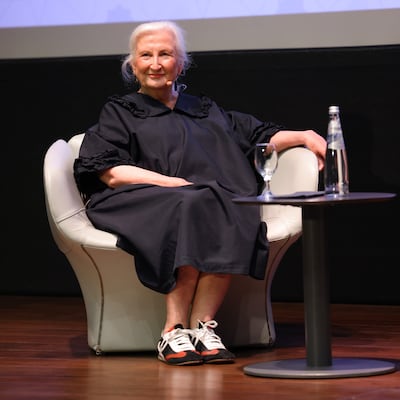
In Conversation with The First Lady of Luxury in Kuwait, Najla Maatouk, Founder of Al Ostoura
The founder of the iconic local store Al Ostoura tells the story of her role in building one of Kuwait’s most influential luxury businesses.
Najla Maatouk shared: “I would consider [myself] not a fashion [person] but an artist, a designer, an innovator and creator. For me, everything that I buy is an art piece. […] I don’t consider it fashion [but] a kind investment, because the designer, the artist, the creative mind, is who I buy.”
Noting how Al-Ostoura translates from the Arabic to “The Legend,” Maatouk shared her intention behind the store name — to manifest a legacy in the region. “When I thought about the name, I thought, the legend will never die. Now, the name matches its positive force.”
Maatouk candidly shared some challenges in her career — such as the Iraqi invasion of Kuwait in 1990 and hiding her products in friends’ stores — to the inspiration behind stocking collections from Japanese brands like Comme des Garçons after drawing a connection between the customs of Japanese and Kuwaiti women.
Indeed, the introduction of Japanese fashion to the region proved a huge hit with the Kuwaiti consumer. “It was suitable for my clients, but I can’t say that I educated [them] — I exposed [the product] and they trusted me. […] My clients and I have a close connection. Whatever I bring, and sell, they understand.”
This is a sponsored feature paid for by Oud Fashion Talks as part of a BoF partnership.
Though e-commerce reshaped retailing in the US and Europe even before the pandemic, a confluence of economic, financial and logistical circumstance kept the South American nation insulated from the trend until later.
This week’s round-up of global markets fashion business news also features Korean shopping app Ably, Kenya’s second-hand clothing trade and the EU’s bid to curb forced labour in Chinese cotton.
From Viviano Sue to Soshi Otsuki, a new generation of Tokyo-based designers are preparing to make their international breakthrough.
This week’s round-up of global markets fashion business news also features Latin American mall giants, Nigerian craft entrepreneurs and the mixed picture of China’s luxury market.